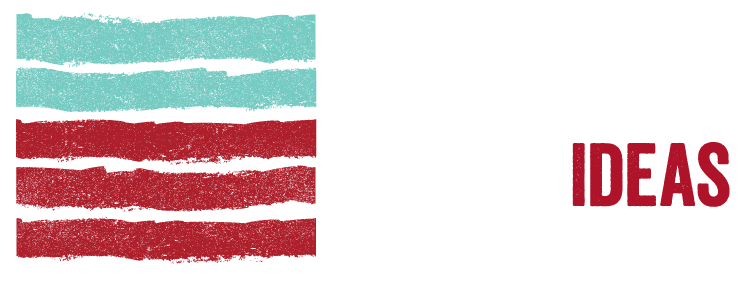About
The University of Utah is leading the American Dream Ideas Challenge in Utah as a member of the Alliance for the American Dream. The Challenge aims to find, fund, and develop policy and technology innovations from individuals or groups in Utah that have the potential to raise net income by 10 percent for 10,000 of the state’s middle-class households by 2020. This statewide Ideas Challenge welcomes creative proposals that focus on sustainable ways to expand access to and increase the stability of the middle class in Utah — whether through policy ideas or investable concepts for public benefit. We are particularly interested in innovative and interdisciplinary solutions in the areas of health care, workforce development, education, transportation, housing and supports for families.
The Alliance for the American Dream, an initiative of Schmidt Futures, consists of four public universities aiming to promote shared prosperity and increase American competitiveness. Through its work, the Alliance seeks to raise the level of collective ambition in driving the breadth, depth, and pace of innovation across the country; inspire further investment in research and development from the public, private, and nonprofit sectors; and create effective partnerships between those with great ideas and the engineers, computer scientists, policymakers, investors, and others who are turning ideas into action.
The American Dream Ideas Challenge is being led by project director Dr. Courtney McBeth, special assistant to President Ruth V. Watkins.
FAQs
Below are answers to commonly asked questions about the American Dream Ideas Challenge. If you can not find the information you are looking for, please email americandream@utah.edu.
The American Dream Ideas Challenge, run by the University of Utah, is a statewide call for innovative policy ideas or investable concepts that will increase net income for 10,000 middle-class households in Utah by 10 percent by 2020. Utah’s participation in the Alliance is made possible through an initial gift of $1.5 million from Schmidt Futures to the University of Utah.
The Alliance believes the best ideas will come from people working together using an interdisciplinary approach grounded in facts, data science, and diverse perspectives to expand access to and increase stability of the middle class in Utah. We are particularly interested in innovative solutions in the areas of health care, workforce development/education, transportation, housing and supports for families.
The University welcomes proposals from individuals, organizations, and entities serving communities throughout the State of Utah. We are looking to engage a broad range of perspectives and encourage ideas from community members, government agencies or entities, nonprofits, business and thought leaders, as well as faculty, staff, and students from universities and colleges from across the state. Organizations must be based in the United States or its territories and must serve communities in Utah.
Over the past 50 years jobs that once provided benefits and a living wage, with some discretionary income leftover, have dwindled. Pew Research Center found the American middle class lost ground in 203 of 229 U.S. metropolitan areas between 2000 and 2014. Many workers once considered middle class — teachers, police officers, fire fighters, correctional officers, social workers, nurses, etc. — struggle to make ends meet given the costs of housing, transportation, health care and food. Supporting their families often requires working multiple jobs.
The Alliance for the American Dream is based on the concept that a healthier and more robust middle class reduces income disparity and provides enhanced opportunity and economic mobility. Its goal is to increase shared prosperity and American competitiveness by generating and investing in ideas that strengthen the middle class by giving more Americans the skills and opportunities they need to improve their lives.
Schmidt Futures launched The Alliance for the American Dream in April 2018 to seed ideas that have potential to support and grow America’s middle class. The alliance consists of four public universities that are soliciting and developing policy and technology ideas in their respective states to ensure a vibrant middle class. The other universities selected to participate are The Ohio State University, Arizona State University and the University of Wisconsin-Madison.
Schmidt Futures is a venture facility for the public benefit working to advance society through technology, inspire breakthroughs in scientific knowledge, and promote shared prosperity. To achieve these goals, it uses a broad set of tools —including gifts, grants, investments, and startup activity — for charitable, educational and commercial efforts with a public purpose.
An innovation leader for nearly four decades, Eric Schmidt has been executive chairman of Alphabet, CEO and chairman of Google, and in leadership positions at Sun and Novell. He is currently a technical advisor at Alphabet. Wendy Schmidt, a business woman and philanthropist, is the president of The Schmidt Family Foundation, where she works to advance the development of renewable energy and the wiser use of natural resources. She is also the co-founder of the Schmidt Ocean Institute, which advances oceanographic research, discovery, and knowledge, and catalyzes sharing of information about oceans.
Eric Schmidt served as the chief executive officer of Novell, based in Provo, Utah, from 1997 to 2001.
Additional resources
Here is a list of relevant articles and resources related to national conversations around the middle class:
- Kem C. Gardner Policy Institute Defining Utah's Middle Class
- Brooking's Middle Class Memos
- Pew Research Center Middle Class
- The Hetchinger Report's Map to the Middle Class
- Urban Institute's Measuring Inclusion in American Cities
- Public servants are losing their foothold in the middle class
- The American middle-class is still thriving in Utah
- What is the middle-class anyway?
- As Utah’s housing crisis worsens, business leaders launch a campaign to change public sentiment.
- Where American Politics Can Still Work: From the Bottom Up.
- Fewer Americans are making more than their parents did—especially if they grew up in the middle class.
